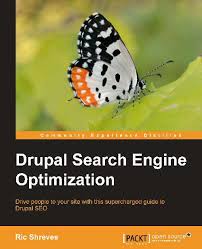
Drupal is a powerful content management system that offers robust features for optimizing your website for search engines. By leveraging the SEO capabilities of Drupal, you can enhance your site’s visibility, attract more organic traffic, and improve your search engine rankings.
To maximize the SEO potential of your Drupal site, consider implementing the following best practices:
In conclusion, Drupal offers a wealth of features and tools to enhance the SEO performance of your website. By implementing these strategies and best practices, you can position your site for success in search engine results pages and attract more organic traffic. Take advantage of Drupal’s SEO capabilities today and unlock the full potential of your online presence!
Improving SEO in Drupal involves implementing a series of strategic steps to enhance your website’s visibility and search engine rankings. To boost SEO in Drupal, start by optimizing your site’s URLs, meta tags, and content with relevant keywords. Utilize Drupal’s built-in features such as XML sitemaps and canonical URLs to ensure proper indexing and avoid duplicate content issues. Additionally, focus on creating high-quality, engaging content that resonates with your target audience while following best practices for on-page optimization. By continuously monitoring and refining your SEO efforts in Drupal, you can effectively improve your site’s search engine performance and attract more organic traffic.
When comparing Drupal and WordPress for SEO, it’s important to consider the specific needs and goals of your website. While both platforms offer strong SEO capabilities, Drupal is often favored for its flexibility and scalability, making it a preferred choice for larger, more complex websites that require advanced customization options. On the other hand, WordPress is known for its user-friendly interface and extensive library of plugins that can simplify SEO tasks for beginners. Ultimately, the decision between Drupal and WordPress for SEO depends on factors such as the size of your website, your technical expertise, and the level of customization you require to achieve optimal search engine rankings.
The frequently asked question about whether Drupal is being discontinued is a common concern among users and potential adopters of the platform. Rest assured, Drupal is not being discontinued. In fact, Drupal continues to evolve and improve with each new release, offering enhanced features, security updates, and performance optimizations. The Drupal community remains active and dedicated to supporting the platform, ensuring its longevity and relevance in the ever-changing landscape of web development. Users can confidently rely on Drupal as a reliable and robust content management system for their website needs.
Drupal is best used for creating robust and highly customizable websites, ranging from personal blogs to large enterprise-level platforms. Its flexibility and scalability make it an ideal choice for businesses and organizations looking to build dynamic websites with complex features and functionalities. With its extensive library of modules and themes, Drupal excels in creating interactive and content-rich websites that can be tailored to suit a wide range of needs, including e-commerce, social networking, online communities, and more. Additionally, Drupal’s strong SEO capabilities make it a popular choice for those looking to optimize their website for search engines and enhance their online visibility.
Drupal SEO refers to the process of optimizing a website built on the Drupal content management system to improve its visibility and ranking in search engine results. It involves implementing various strategies and best practices, such as creating SEO-friendly URLs, customizing meta tags, generating XML sitemaps, and ensuring mobile optimization. By leveraging Drupal’s SEO capabilities, website owners can enhance their online presence, attract more organic traffic, and ultimately achieve better search engine rankings. Drupal SEO plays a crucial role in helping websites reach their target audience effectively and drive sustainable growth in the digital landscape.